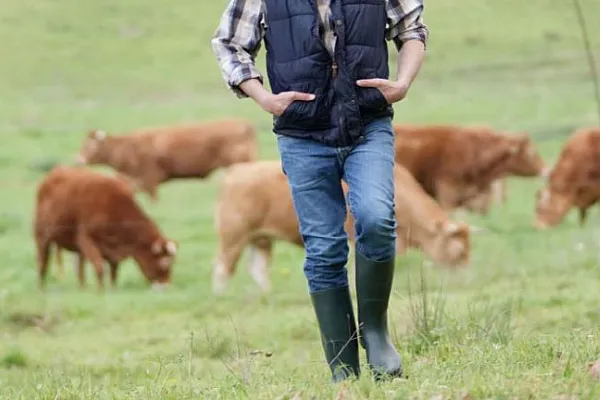
Women in Science Mentoring Award
The Women in Science Mentoring Award recognizes an individual whose efforts have encouraged women and/or girls in the sciences. Mentoring efforts may be demonstrated by such things as the number of women mentored in academic, government, or industry positions; assisting students in presenting and publishing their work, finding financial aid, and providing career guidance; providing psychological support, encouragement, and strategies for maintaining work-life balance for early-career professionals in agronomy, crops, soils, and environmental sciences; and continued interest in the individual professional advancement of women scientists. The recipient receives $1,500 and a plaque, which is presented at the Women in Science event at the Annual Meetings.
Award nominations typically open early spring of each year. For more information or to submit a nomination, please visit our Awards & Scholarships page.
Mentoring Award Recipients
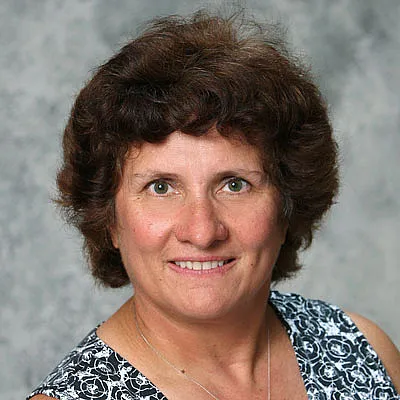
2019
Dr. Sharon Clay, South Dakota State University
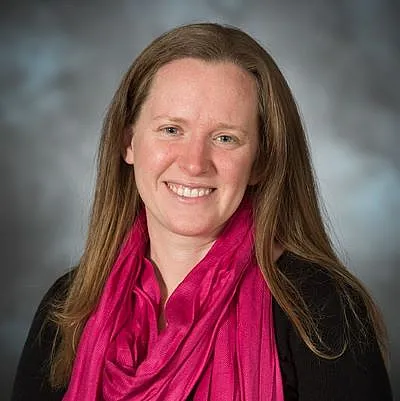
2018
Dr. Candice Hirsch, University of Minnesota-Twin Cities
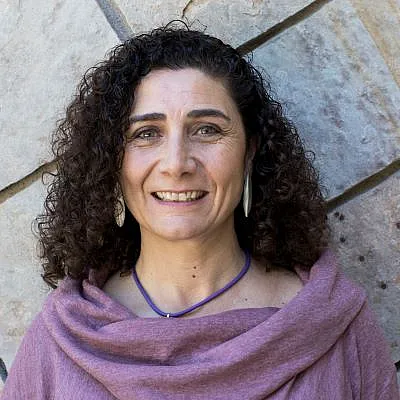
2017
Dr. Francesca Cotrufo, Colorado State University
Dr. Sharon Clay is a Distinguished Professor in the Plant Science Department of South Dakota State University, with expertise in Weed Science, and has been with SDSU since 1993. Dr. Clay states that she tries to be a role model for all of her students and help them on their life’s adventures. Many of her graduate students have started families or have children to support and I assist them in life’s numerous roles as best as possible. I try to instill a sense of work-life balance (work hard, play hard, and have family first), scientific inquiry, publishing their research for career advancement, life-long learning, and a passion for continuous improvement. Dr. Clay notes that she has had challenges as she started her career and the mentorship and support from professors, her husband, and numerous other mentors have inspired her to always work to “pay it forward” and have no one, man or woman, treated as if they can’t do the work because of gender. Sharon is currently mentoring 18 undergraduate students, 11 MS students, 3 PhD students, 1 post-doc, and 5 research associates! She actually helped to establish this Mentoring in just one of her numerous roles with the American Society of Agronomy, including President (2013). She believes it is important to recognize the role that mentors have in preparing women for the workforce in agriculture (and support in work-life balance). She also initiated a program to bring undergrads together with the past presidents of the three Societies and the Greenfield Scholars program. She has a PhD in agronomy from the University of Minnesota (1986).
Candy is an Assistant Professor in the Department of Agronomy and Plant Genetics at the University of Minnesota-Twin Cities. She has a 75% research and 25% teaching appointment in maize translation genomics.
Dr. Hirsch has established strong research and teaching programs related to crop improvement, is active in graduate and undergraduate education, and provides leadership in mentoring and service activities. She has initiated numerous programs for females in STEM fields at the collegiate and K-12 levels.
Candy has proven herself as an outstanding young faculty member and is truly dedicated to being a great mentor and role model for young women in science.
Dr. Francesca Cotrufo is a professor in the Department of Soil and Crop Sciences at Colorado State University. She is a soil ecologist and biogeochemist in the field of litter decompostion and soil organic matter C and N dynamics. Dr. Cotrufo is the ideal mentor for women in soil science: she is an incredibly successful research scientist; she is equally passionate about student learning and student success, and she is a dedicated mentor who strives to support and promote women in soil science, from K-16 to graduate school to the profession. She has mentored over 40 women to be successful students, post-doctorates, research scientists, faculty, and teachers.
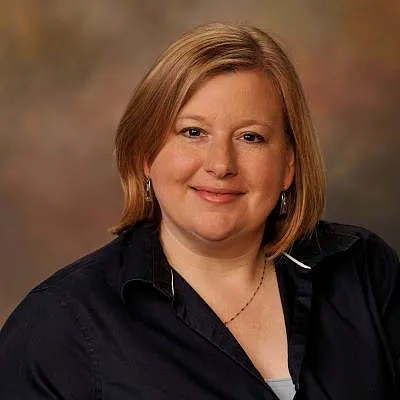
2016
Dr. Julie A. Howe, Auburn University
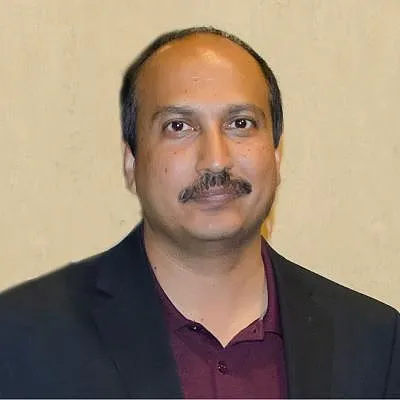
2015
Dr. Prasanna H. Gowda, USDA-ARS
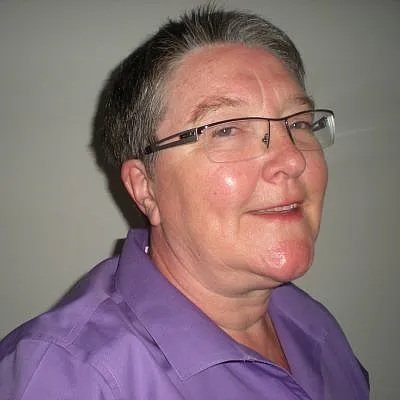
2014
Dr. Helga Van Miegroet, Utah State University
Dr. Julie Howe has been at Auburn since 2007. Dr. Julie Howe’s thoughtfulness and encouragement of women students has produced a cohort of BS, MS, and PhD students that have productive careers in soil and environmental sciences. She notes that being female in a male-dominated field can be intimidating for women of any age, including herself. However, moving across the nation for her PhD gave her confidence in herself and forced her to work independently. During this time, she noticed many women interested in agriculture and environmental sciences who struggled with these same issues. She now works with and is committed to mentoring women and is viewed by many at Auburn University as an early career faculty member that has a passion for encouraging and mentoring female students to seek and establish successful careers in one of the sciences, specifically the agricultural sciences, as well as encouraging women in their academic careers. She has presented an invited seminar at the Auburn University Women’s Initiatives Brown Bag Seminar series on the topic of “Seeking the perfect balance: Perfectionism and work-family conflict”. As you walk the hallways at Auburn, you will see and hear Dr. Howe advising, instructing, and connecting with women students. Dr. Howe encourages female undergraduates to pursue graduate degrees and takes time to recommend the best program for their area of interest. Dr. Howe has a PhD in soil science from the University of Wisconsin-Madison (August 2004) and is an Associate Professor at Auburn University.
Dr. Gowda, in his career, has made significant advances in the scientific understanding in modeling evapotranspiration and non-point source pollution, and in applications of GIS and remote sensing for natural resource conservation. Young women and men scientists who have been mentored and supervised by Dr. Gowda play key roles these advances. This has resulted in young students/scientists with novel research projects and state of the art instrumentation. His research program often involves commitment to women pursuing research careers. He exemplifies every aspect of mentoring and advancing women as scientists from finding financial support to guiding experimental efforts and, ultimately, documenting that work before realizing their own career appointment. As the past president of the Association of Agricultural Scientists of Indian Origin, Dr. Gowda routinely hosts students from India, serves as a mentor to many of them and assist them in finding research assistantships through his contacts in the U.S. Considering his success in mentoring both young women and men scientists, it is not surprising to see that there is a huge competition among prospective student interns to join Dr. Gowda’s research program. Dr. Gowda works diligently to create opportunities for young students/scientists especially women scientists although it was not required as part of his official duties. He actively mentored/advised many young scientists/students and played a positive role in their professional life. Dr. Gowda is an ASA Fellow and Research Agricultural Engineer with the USDA-ARS Conservation and Production Research Laboratory, Bushland, TX.
Dr. Helga Van Miegroet is a professor at Utah State University and earned her PhD in forest soils and mineral cycling from the University of Washington. Her research interests include forest carbon and nutrient dynamics; the effects of management, vegetation shifts, and climate change on soil carbon storage and quality in wildland soils; and mineral cycling in wildland ecosystems. In addition to her strong research, teaching, and mentoring accomplishments, Dr. Van Miegroet has made a concerted effort throughout her career to promote women in science. In 2004 and 2012 she was honored as the College of Natural Resources Undergraduate Research Mentor of the Year. Since arriving at USU she has been a major advisor to 6 PhD and 14 MS students. Of these 3/6 PhD and 11/14 MS students have been women. Dr. Van Miegroet has also mentored or advised more than 40 undergraduate students in research projects or as research assistants in her lab. In addition, Dr. Van Miegroet began graduate studies in sociology in August 2013 to investigate the role of gender in the advancement of women in academia. Her goal is to use the credentials and knowledge from her pending degree to raise awareness in the scientific community of our collective biases and how that affects the career trajectories of women.
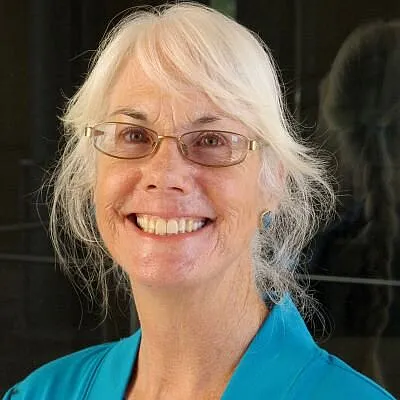
2013
Dr. April Ulery, New Mexico State University
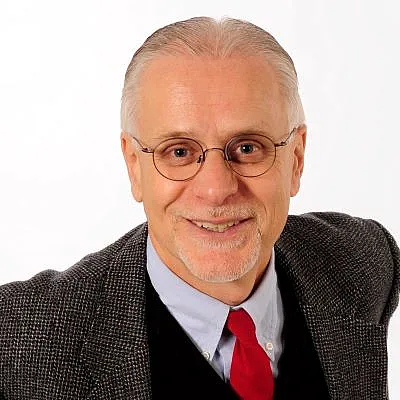
2012
Dr. Lee Burras, Iowa State University
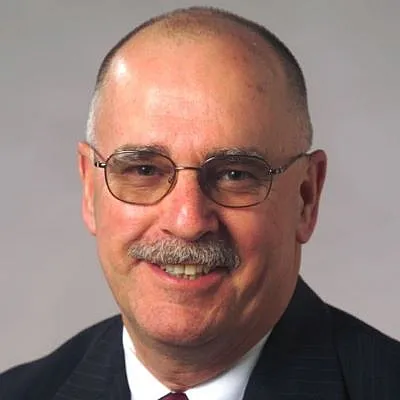
2011
Dr. Ronnie Coffman, Cornell University
Dr. April Ulery is a Professor of Soil Science in the Plant and Environmental Sciences Department at New Mexico State University. She received her B.S. degree in Geology from University of Redlands and M.S. and Ph.D. degrees in Soil Science from the University of California, Riverside. Dr. Ulery’s interdisciplinary research program addresses both agricultural productivity and environmental issues by quantifying soil properties such as salinity, nutrient status, and metal contaminant concentrations in areas using treated water and agricultural waste. She has served as an associate editor for Soil Science Society of America Journal and Vadose Zone Journal. She was elected Fellow of the Soil Science Society of America in 2012 and has served on the SSSA Board of Directors representing the Soil Mineralogy Division and served as Chair of that division. She has received several teaching awards and has served on over 35 graduate student committees at NMSU.
Dr. Lee Burras, Professor of Agronomy at Iowa State University (ISU) and a nationally recognized teacher, mentor and researcher, received the 2012 Mentoring Award from the Women in Agronomy, Crops, Soils, and Environmental Sciences Committee. Dr. Burras was lauded for mentoring a generation of highly successful, articulate, and engaged professional women, with his former students now holding such positions as assistant/associate professor, sustainability coordinator, NRCS soil scientist, NRCS area resource soil scientist, PhD fellow, and director/associate director of non-profit/NGOs.
Former students praised Dr. Burras’s dedication to developing each student academically, professionally, and personally. The award was presented to Dr. Burras at the Women in Agronomy, Crops, Soils, and Environmental Sciences luncheon on October 23, 2011 at the ASA, CSSA, and SSSA Annual Meetings in Cincinnati, Ohio.
Dr. Ronnie Coffman, International Professor of Plant Breeding and Director of International Programs at Cornell University, received the 2011 Mentoring Award from the Women in Agronomy, Crops, Soils, and Environmental Sciences Committee. The award acknowledged Dr. Coffman for the tremendous energy that he has devoted to enhancing the careers of many women scientists in agriculture and plant breeding, both in the United States and Internationally. Dr. Coffman was lauded for making a remarkable difference at pivotal points in many women’s careers around the world due to his advocacy, humility, and encouragement; and for recognizing the importance of gender equity when working toward a food-secure world. The award was presented to Dr. Coffman at the Women in Agronomy, Crops, Soils, and Environmental Sciences luncheon on October 18, 2011 at the ASA, CSSA, and SSSA Annual Meetings in San Antonio, Texas.
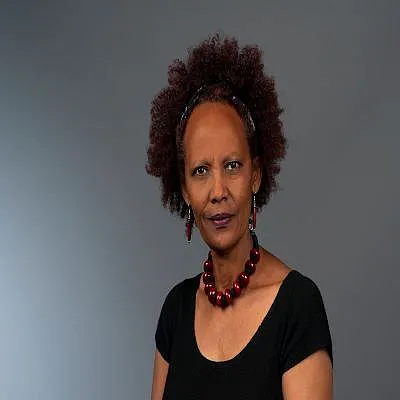
2010
Dr. Ozzie Abaye, Virginia Tech
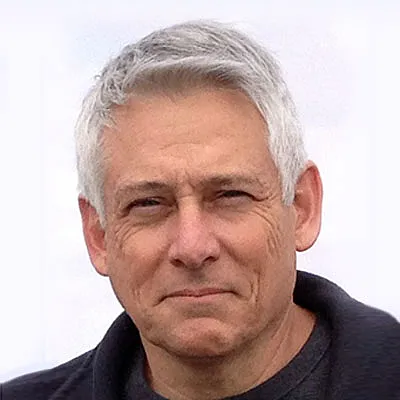
2010
Dr. Robert Schwartz, USDA-ARS
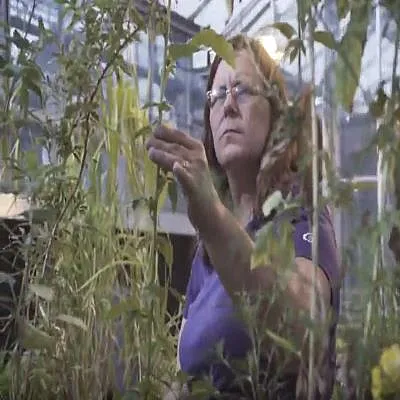
2009
Dr. J. Anita D. Dille, Kansas State University
The 2010 award was presented to Dr. Ozzie Abaye and Dr. Robert Schwartz. Both were cited for their extraordinary efforts in the career development of women. Dr. Abaye is an Associate Professor in the Crop and Soil Environmental Sciences Department at Virginia Tech. She has a strong record of promoting and assisting women in the agronomic sciences through her roles as an advisor, committee member, teacher and confidante. Dr. Abaye’s efforts and leadership have been an instrumental part of increasing the participation of women in positions of leadership and graduate study at Virginia Tech.
The 2010 award was presented to Dr. Ozzie Abaye and Dr. Robert Schwartz. Both were cited for their extraordinary efforts in the career development of women. Dr. Robert Schwartz is a Research Soil Scientist with the USDA-ARS in Bushland, Texas. He has mentored many women in the agronomic sciences due to his assistance in their professional development, patient training, and thoughtful guidance. Most notably, Dr. Schwartz realizes the additional demands that affect women with families. He has embraced these challenges leading to a focused yet family friendly work environment.
The 2009 award was presented to Dr. J. ‘Anita’ D. Dille and Dr. Debbie A. Soukup. Dr. Dille, Professor in the Agronomy Dept., Kansas State Univ., was recognized for efforts which included leading the large NSF-ADVANCE project which involved all the women agronomists at KSU plus two associated departments to study problems unique to women agronomists and provide mentoring; mentoring many women graduate students who are now employed by academia, industry and government both in the USA and abroad; establishing a “Learning Farm” at KSU; and teaching a capstone course for the Natural Resources and Environmental Sciences major.
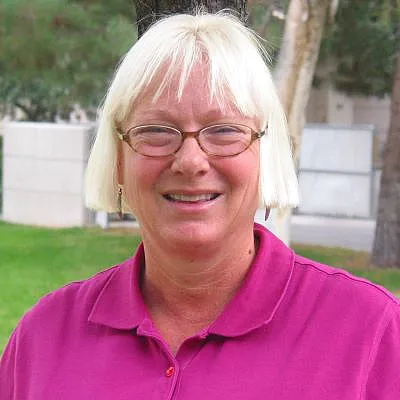
2009
Dr. Debbie A. Soukup, University of Nevada-Las Vegas
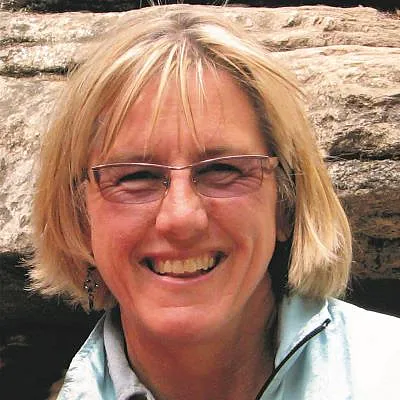
2008
Dr. Kimberly Garland-Campbell, USDA-ARS
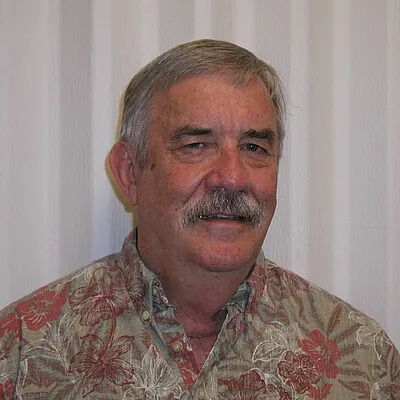
2008
Dr. William Koskinen, USDA-ARS
The 2009 award was presented to Dr. J. ‘Anita’ D. Dille and Dr. Debbie A. Soukup. Dr. Soukup, an environmental consultant in southern California and presently an Adjunct Professor in the Geosciences Dept., Univ. of Nevada-Las Vegas, was recognized for her contributions in teaching numerous classes, symposia and workshops that she developed; mentoring many faculty and graduate students in academia, government agencies and consulting firms; showcasing the research of early career female scientists; and being a positive role model.
The 2008 award was presented to Dr. Kimberly Garland-Campbell and Dr. William Koskinen. Both were cited for their extraordinary efforts in the career development of women. Dr. Garland-Campbell is a Research Geneticist with the USDA-ARS unit in Pullman, Washington. She has a strong record of promoting and assisting women in the sciences through her roles as an advisor, committee member, teacher and confidante. Kim has implemented family-friendly work policies that have enabled women with families to continue on their chosen career track.
The 2008 award was presented to Dr. Kimberly Garland-Campbell and Dr. William Koskinen. Both were cited for their extraordinary efforts in the career development of women. Dr. Koskinen is a Research Soil Scientist with the USDA-ARS unit in St. Paul, Minnesota. He has mentored more than 30 women in the field of pesticide chemistry, many of whom have gone on to distinguished careers of their own. Particularly noteworthy are the number of high school and undergraduate students who have worked in his laboratory and subsequently decided to pursue advanced degrees in science.